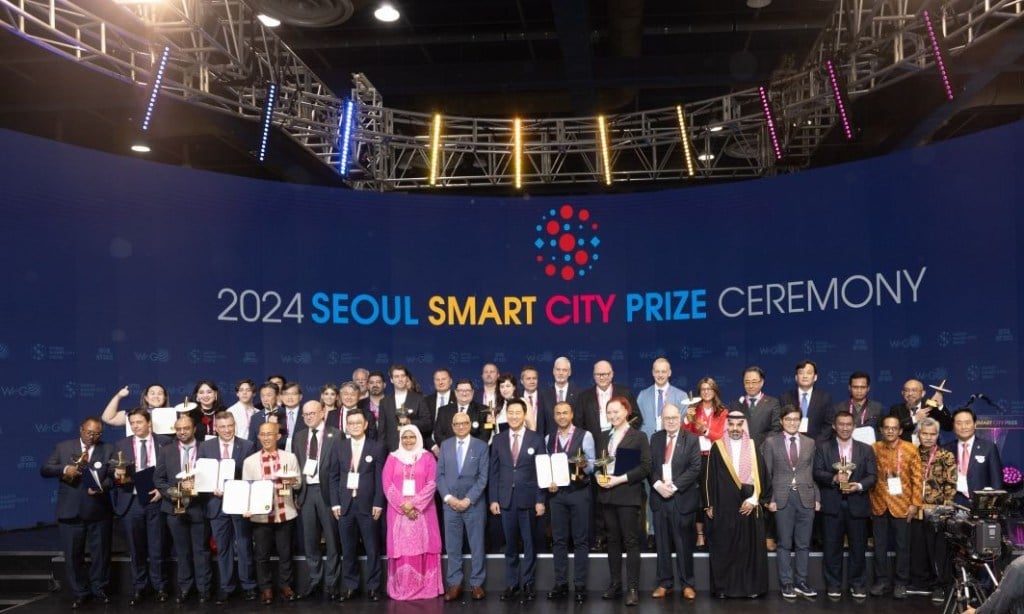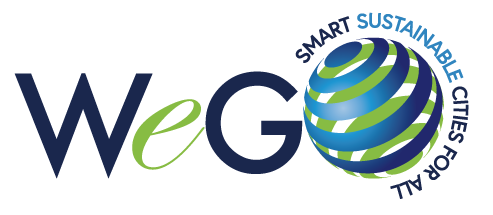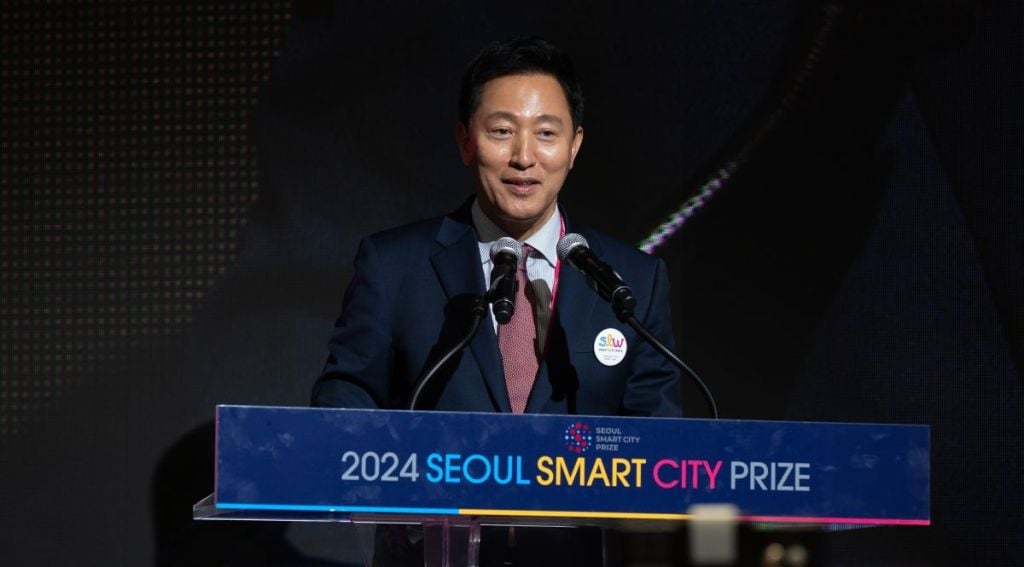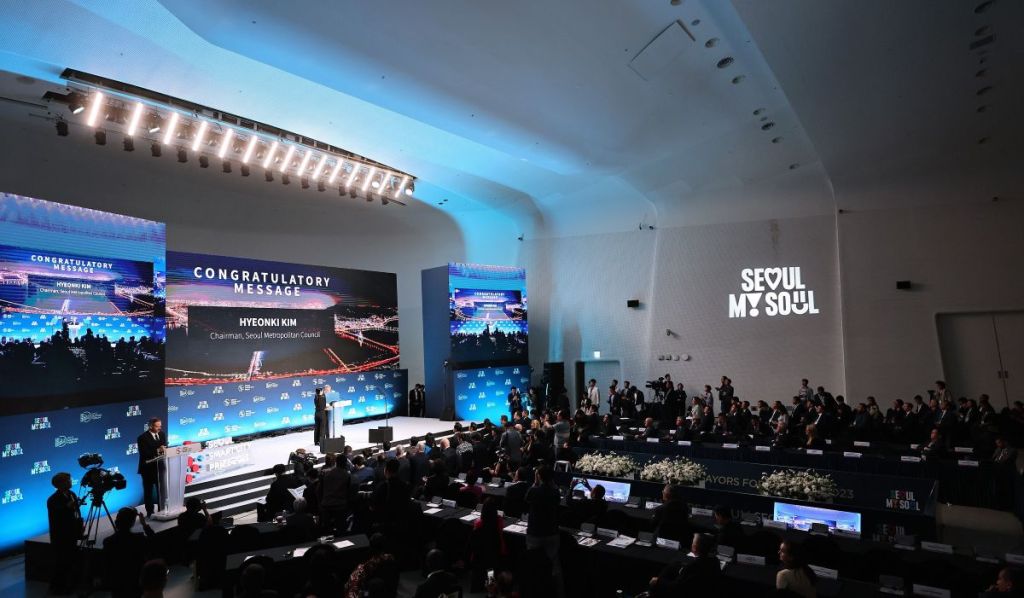How the Seoul Smart City Prize is Shaping Inclusive, Smart, and Sustainable Innovation in Cities
The Seoul Smart City Prize, led by the World Smart Sustainable Cities Organization (WeGO), is revolutionizing the digital transformation of cities by leading smarter, more human-centered development

By WeGO
Seoul, April 28th, 2025 — As smart city innovation takes center stage in the race for a sustainable future, the World Smart Sustainable Cities Organization (WeGO), one of the world’s longest-standing organizations dedicated to global cooperation among city governments on smart city initiatives while operating with public-private partnership (PPP). WeGO’s Secretariat is based in Seoul and has regional offices in Chengdu, Istanbul-Beyoglu, Abuja, Abu Dhabi, Cuenca, and Almaty. WeGO has opened applications for the 2025 Seoul Smart City Prize. Celebrating excellence in human-centric and technology-driven urban development, the Prize invites cities, corporations, institutions, and individuals worldwide to showcase initiatives that are shaping the cities of tomorrow. Winners will be honored at a prestigious ceremony at Seoul’s COEX Convention and Exhibition Center during Seoul Smart Life Week (SLW), highlighting the best smart city projects for smarter, more inclusive cities.

Marking its third year, the beauty of the Seoul Smart City Prize lies in its emphasis on capturing efforts despite differences in the smart city development stages, infrastructure, and resources each city is faced with. The criteria and indicators of the Seoul Smart City Prize are carefully selected to capture both the current trends in smart city development. Rather than awarding only the most advanced technologies, it recognizes innovative uses of existing solutions. The Prize places special emphasis on digital inclusion, human-centered digital transformations with tech-driven solutions that benefit vulnerable populations and promote equitable, sustainable growth.
President of WeGO and Mayor of Seoul, Oh Se-hoon, stated, “If cities around the world can work together to improve the quality of life for citizens through the Seoul Smart City Prize, I am confident that we will be able to overcome difficult urban problems and achieve mutual growth.”

Among the Seoul Smart City Prize categories, Tech-InnovaCity, Human-CentriCity, Leadership, and Special Mention, the top winners of 2024 were the cities of Abu Dhabi, Addis Ababa, Arlington, Baguio, Cali, and Reykjavik. Over 200 submissions were collected across 58 countries and 123 cities with regional distribution made globally throughout Africa, Asia, Europe, Latin America, Middle East, North America and Oceania.
Baguio, Philippines earned the Human-CentriCity Gold Prize for its commitment to digital inclusion, particularly through its Leadership, Empowerment, and Advocacy for Inclusive and Accessible Health Governance System. The city’s healthcare system faces issues like fragmented records, inefficiencies, and care gaps, leading to higher costs and delays. The BIAG project addresses this by providing accessible health records, telemedicine, and equitable healthcare access. It connects hospitals for seamless care with comprehensive medical records from birth to death ensuring efficient, inclusive, and high-quality care for all.
Reykjavik, Iceland, secured the Tech-InnovaCity Gold Prize, recognized for its Better City For Children – School Services project, which empowers local communities to play a vital role in schooling services development efforts. Reykjavik revamped its school services by creating a digital system, streamlining applications, and improving communication. Key changes included secure info-sharing between teachers and specialists, forming solution teams for early intervention, and replacing paper forms with a single digital application. These efforts boosted the efficiency of school services.
In the Leadership Prize category, Adanech Abiebie, Mayor of Addis Ababa, Ethiopia was honored for his significant contributions to Addis Ababa’s development and residents’ well-being, positioning the city as an international leader in smart urbanism. The Corporation Prize under the Human-CentriCity category went to a new member of WeGO, LG Electronics, alongside the City of Tampere and Nokia Arena for their collaboration.
Special Mention was also awarded in collaboration with key partners of WeGO, such as the Global Green Growth Institute (GGGI), International Institute for Management Development (IMD) and SEMI. GGGI’s Special Mention went to Iligan, IMD awarded Istanbul while SEMI awarded Dassault Systèmes with for their outstanding contributions to sustainable urban growth and citizen-centric digitalization efforts.

For the Seoul Smart City Prize winners can gain benefits such as,
- Joining a network of Seoul Prize winners for a diverse range of opportunities for engagement
- Being invited as semi-finalists or finalists to the following year’s Prize ceremony and events. This year to the Seoul Smart Life Week (SLW) where they are provided with exhibition booths, tour programs, and invitations to present their project.
- The opportunity to participate in a peer to peer learning program hosted in Seoul
- For selected winners of the Seoul Smart City Prize, being granted an opportunity to implement a smart city project, including assistance to conduct pre-feasibility studies with financial support.
The Seoul Smart City International Cooperation Program 2024, one of the follow-up initiatives provided as a benefit to the winners of the Seoul Smart City Prize, has successfully concluded its 2024 project cycle with the City of São Paulo. São Paulo, a winner of the 1st Seoul Smart City Prize, was selected for the 2024 Seoul Smart City International Cooperation Program, receiving support for a project to upgrade its Accessible Service Network Map for people with disabilities.In partnership with WeGO, this program was led by the Seoul Urban Solutions Agency (SUSA), in coordination with the Municipal Secretariat of People with Disabilities of São Paulo City (SMPED). Backed by a value of approx. USD 150,000 (KRW 200,000,000), drawing upon Seoul’s successful Smart Map (S-Map) model, the collaboration addresses accessibility challenges for disabled populations in São Paulo by providing more accurate and comprehensive information about accessible public facilities.
This year, a total of 42 semi-finalists will be invited to participate in the prestigious Seoul Smart City Prize Ceremony (see recorded livestream here), an event that celebrates innovation and leadership in the field of smart city development. During the ceremony, 21 of these distinguished participants will be selected and honored as finalists, recognizing their exceptional contributions and groundbreaking achievements in advancing the future of smart cities.
